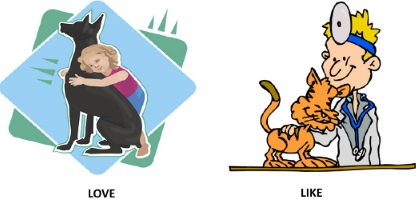Word Relationships
2nd Grade
|
|
|
Arizona Academic Standards:
2.L.4.c
|
Use knowledge of the meaning of individual words to predict the meaning of compound words (e.g., birdhouse, lighthouse, housefly; bookshelf, notebook, bookmark). |
Common Core State Standards:
Literacy.L.2.4d
Georgia Math and ELA Standards:
ELAGSE2L4d
Kentucky Academic Standards (KAS):
L.2.4.d
Mississippi College- and Career-Readiness Standards:
L.2.4d
New York State Next Generation Learning Standards:
2L4d
|
Use knowledge of the meaning of individual words to predict the meaning of compound words (e.g., birdhouse, lighthouse, housefly; bookshelf, notebook, bookmark). |
North Carolina - Standard Course of Study:
L.2.4.d
|
word relationships |
Ohio's Learning Standards:
L.2.4.d
|
Use knowledge of the meaning of
individual words to predict the meaning
of compound words (e.g., birdhouse,
lighthouse, housefly; bookshelf,
notebook, bookmark). |
Tennessee Academic Standards:
2.FL.VA.7a.iv
|
Use knowledge of the meaning of individual words to predict the meaning of compound words. |
Wisconsin Academic Standards:
L.2.2.c
|
Use individual words to predict meaning of compound words (e.g., birdhouse). |
Alabama Course of Study Standards:
16.a
|
Use knowledge of antonyms and synonyms. |
Arizona Academic Standards:
2.L.5.b
|
Identify synonyms and antonyms to distinguish shades of meaning among closely related verbs (e.g., toss, throw, hurl) and closely related adjectives (e.g., thin, slender, skinny, scrawny) |
Common Core State Standards:
Literacy.L.2.5b
Georgia Math and ELA Standards:
ELAGSE2L5b
Kentucky Academic Standards (KAS):
L.2.5.b
Mississippi College- and Career-Readiness Standards:
L.2.5b
New York State Next Generation Learning Standards:
2L5c
|
Distinguish shades of meaning among closely related verbs (e.g., toss, throw, hurl) and closely related adjectives (e.g., thin, slender, skinny, scrawny). |
North Carolina - Standard Course of Study:
L.2.5.a
|
Distinguish shades of meaning among closely related verbs and closely related adjectives. |
Ohio's Learning Standards:
L.2.5.b
|
Distinguish shades of meaning among
closely related verbs (e.g., toss, throw,
hurl) and closely related adjectives (e.g.,
thin, slender, skinny, scrawny). |
Tennessee Academic Standards:
2.FL.VA.7b.ii
|
Distinguish shades of meaning among closely related words. |
Wisconsin Academic Standards:
L.2.3.c
|
Distinguish shades of meaning among similar verbs (e.g., toss, throw) and adjectives (e.g., happy, pleased). |
Georgia Math and ELA Standards:
2.L.V.3.e
|
Use knowledge of word relationships and learned vocabulary words and phrases when making word choices in speaking and writing. (C) |
|
|


 2nd Grade Writing - Word Relationships Lesson
2nd Grade Writing - Word Relationships Lesson






